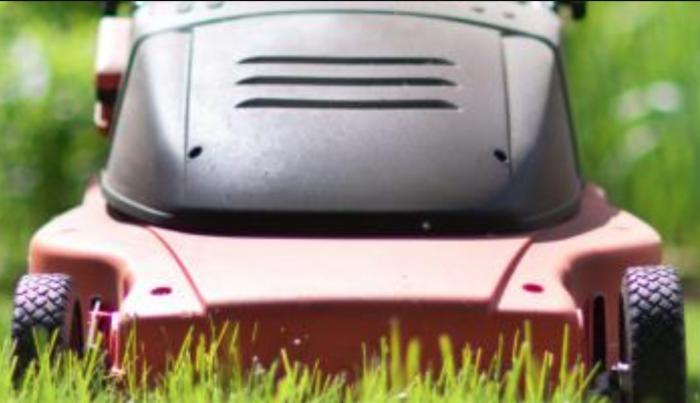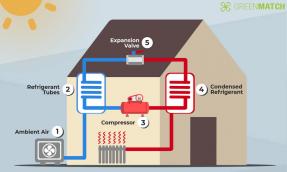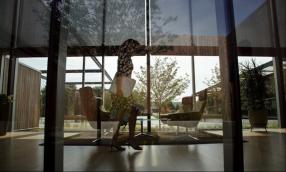
Most homeowners are familiar with the earth-shattering noise that leaf blowers produce, but few are aware of the impacts that the traditional landscaping industry has on the environment and our public health.
According to the EPA, gas-powered landscaping equipment is a major contributor to climate change, producing 13-21% of toxic air emissions in the US each year.
As if that statistic wasn’t jarring enough, recent studies have linked daily exposure to gas-powered tools to hearing impairment and a high risk of developing leukemia, among other serious diseases. In other words, landscaping is not only an environmental issue, but also a public health issue.
Fortunately, there is an alternative: electric landscaping.
Within the past century, electric yard equipment has developed rapidly and exploded in popularity. The electric lawnmower was first invented in 1930 (about 100 years after the gas-powered mower), but it was not widely used until the 1990s. Since then, due to technological advances and climate change research, demand for electric equipment has grown exponentially. In fact, the electric lawn mower market for the US is projected to reach over $1 billion in revenue by 2024.
Here at EcoQuiet Lawn Care, we use 90% electric landscaping equipment and have been since 2014. In our view, the widespread adoption of electric equipment is an important shift in the lawn and garden industry (and a sigh of relief for us environmentalists). The impacts of gas-powered yard equipment are far-reaching and multifaceted. Within this article, we will cover three negative impacts of traditional landscaping – pollution, noise, and health hazards – and how replacing gas with electric equipment mitigates those impacts.
The 2-stroke gas engine is the real culprit behind the outsized impact that landscaping has on the environment. In fact, a recent study showed that a 2-stroke leaf blower produced a mind-boggling 33,000% more toxic pollution than a Ford F-150 Raptor, a truck well-known for its gas-guzzling engine. 2-stroke engines have a simplistic, light, and powerful design, making them attractive for use in small handheld equipment, but the pollution they produce is unacknowledged and underreported.
Electric tools, on the other hand, are reliable, quiet, healthy for the environment, and often just as powerful as their gas-and-motor-oil counterparts. Electric leaf blowers are less powerful, but with the use of rakes and leaf plows, one can achieve the same results as with traditional methods. In the end, this is healthier for the environment – the powerful winds that come from a gas-powered leaf blower send particles flying, including fertilizers, pesticides, and other topsoil, which scars the landscape and makes breathing hazardous nearby.
Although hiring an electric lawn care company can reduce a homeowner’s carbon footprint, some may choose to go a step further. Many green-focused landscaping companies, such as EcoQuiet, can consult with clients to create a more sustainable outdoor space with native plants and less intrusive, natural solutions for the problems of landscaping.
According to George (EcoQuiet’s founder), “Our goal is to take the current landscaping model – which is mulch beds that insects can’t overwinter in, lawns that poison pollinators with insecticide, and the constant drone of gasoline equipment that disturbs wildlife – and bring it back to a more sustainable and caring model focused on symbiosis.”
Electric tools are quiet, and that’s more than just a relief for homeowners and their neighbors (and their neighbors’ neighbors). Gas-powered lawn care tools can produce 100 decibels of low-frequency noise that penetrates windows and walls with ease. That’s the same amount of noise as a low-flying jet liner. As more and more people work from home, the noise is that much more disruptive, and the low-frequency sound is difficult or even impossible to block out.
Electric landscaping companies are happy to offer a solution. Even for homeowners who are skeptical of climate change, the obvious benefit of quiet landscaping is impossible to ignore. Electric leaf-blowers create one twentieth of the noise that gas-powered ones do, which is to say that the noise produced by one gas leaf blower is equivalent to twenty electric leaf blowers turned on at full blast.
Using landscaping tools from time to time is unlikely to cause harm to the average homeowner, but for landscaping workers who use these tools every day, their health and life expectancy are at stake.
According to Purdue University, prolonged exposure to gas-powered lawn care tools (especially gas leaf blowers) can cause serious hearing damage. Workers who spend long hours with this powerful equipment can experience pain and even hearing loss. Moreover, breathing in these fumes on a regular basis can lead to a wide range of medical issues, including heart disease, nerve damage, and several types of cancers. One chemical in particular – benzene – has been demonstrably linked to the development of leukemia and multiple myeloma. By adopting the use of electric equipment or hiring an electric landscaping company, landscaping employers and homeowners can rest assured they are not exposing employees to high amounts of these chemicals.
As mentioned earlier in this article, most electric landscaping tools are equivalent in power to their gas counterparts. The one exception to this is leaf blowers. The time needed to rake and plow leaves translates to higher labor costs, especially for big properties. That said, we want to make electric landscaping accessible to everyone, so we’ve compiled a list of things you can do to optimize your yard for electric tools (See “Six Ways to Prep Your Yard for Electric Landscaping”). For those who want to live an eco-friendly and wallet-friendly lifestyle, these tips are an excellent place to start.
Related Articles and Discussions:
Electric Lawn and Garden Equipment - A Revolution in the Making
Why Landscaping Companies Should Consider Going Electric, by George Carrette, EcoQuiet Lawncare
Six Ways to Prep Your Yard for Electric Landscaping
Leaf Blower Bans and other Noise Pollution Limits On the Rise
Sources:
http://www.meca.org/galleries/files/sore_white_paper_0109_final.pdf
https://www.ncbi.nlm.nih.gov/pmc/articles/PMC1533055/
https://www.osha.gov/landscaping
https://www.protoolreviews.com/gas-vs-battery-powered-leaf-blowers/
https://www.chem.purdue.edu/chemsafety/Training/PPETrain/dblevels.htm
https://www.edmunds.com/car-reviews/features/emissions-test-car-vs-truck-vs-leaf-blower.html
https://ww3.arb.ca.gov/msprog/offroad/sore/exposurestudysummary10122018.pdf
Image: ww2.arb.ca.gov
- Filed Under: Landscaping and Land Management
- Keywords : Electrification, Lawn care, Electric Lawn and Garden Equipment, Lawncare, Landcaping, Lawn and Garden Equipment, Electric Landscaping, Electric Lawn Care, Lawns
- ( 19578 ) views

We believe that beautiful landscaping and lawns can be achieved with respect for the environment. We use electric equipment and organic practices to provide our clients with full-service landscaping while caring for the earth.
- ( 0 ) Ratings
- ( 0 ) Discussions
- ( 0 ) Group Posts
Reply/Leave a Comment (You must be logged in to leave a comment)
Connect with us!
Subscribe to our monthly newsletter:
 Greenbuild Report Out, 2025 Nov 12, 2025
Greenbuild Report Out, 2025 Nov 12, 2025



























Not a Member Yet? Register and Join the Community | Log in